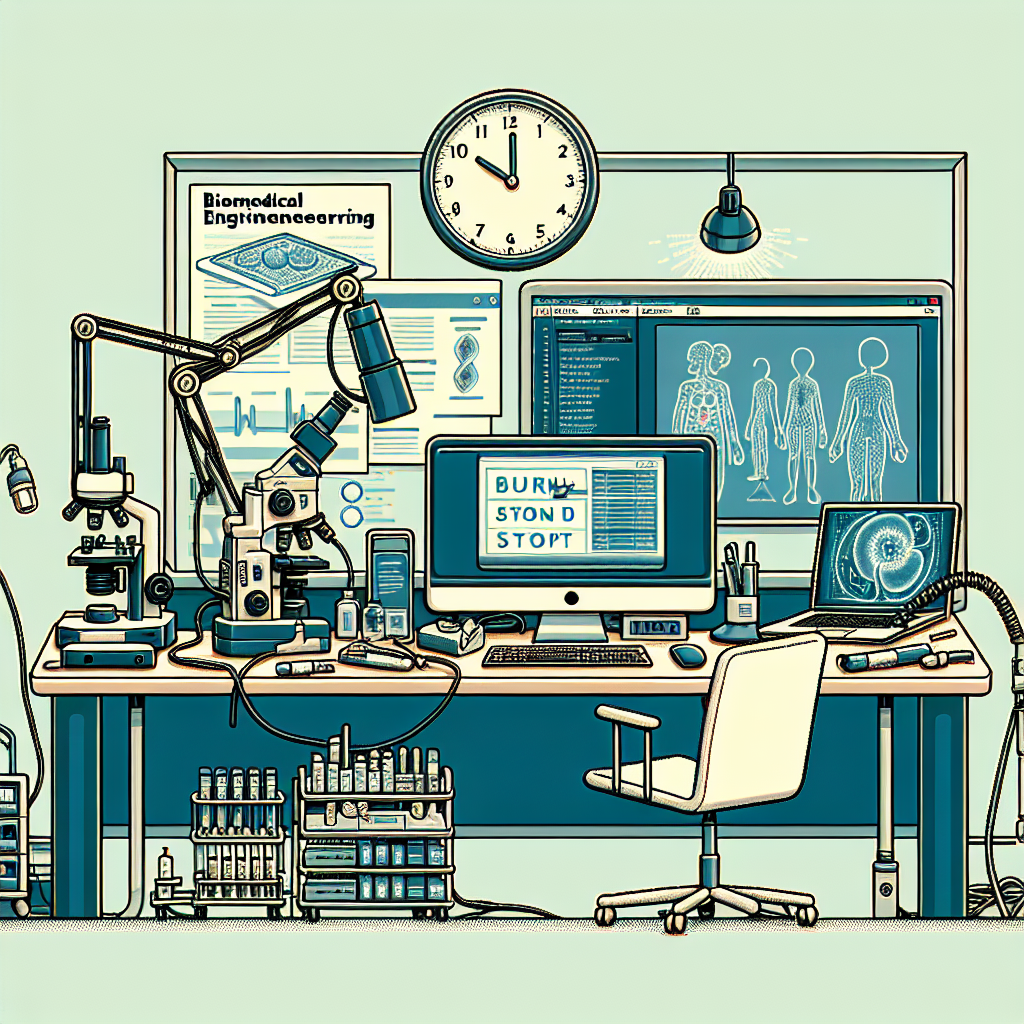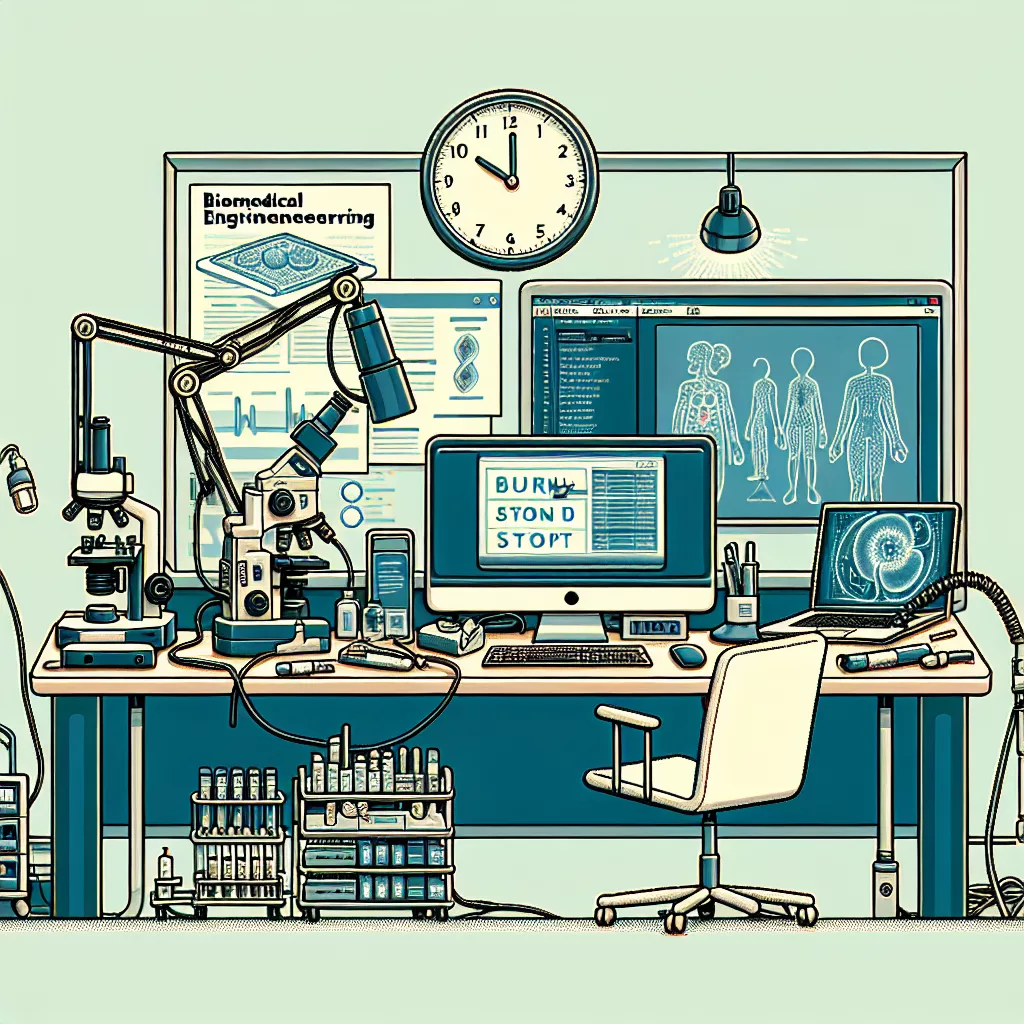The risk of burnout is a pressing issue for biomedical engineers as they navigate complex projects, tight deadlines, and ever-evolving technological demands.

- High pressure to innovate and solve complex problems.
- Long hours with tight project deadlines.
- Interdisciplinary demands require broad knowledge base.
- Continuous need for professional development.
- Lack of recognition for behind-the-scenes contributions.
- Limited funding for research projects.
- Emotional burden of healthcare-related work.
Statistical analysis indicates that career burnout levels among Biomedical Engineers can be classified as Moderate.
Reasons Biomedical Engineers burnout
According to the science to date there are key reasons people burnout at work. Here’s our top reasons why Biomedical Engineer in the Healthcare category has a burnout risk of Moderate:
High Stress and Pressure: As a biomedical engineer, you are often tasked with designing and developing cutting-edge medical technologies. The demand for precision and innovation places you under constant stress and pressure. Deadlines and high expectations can lead to chronic stress, contributing significantly to burnout.
Complex Problem-Solving: The role requires solving complex and intricate engineering problems. This continuous demand for high-level cognitive functioning can be mentally exhausting. You may feel overwhelmed by the constant need for innovative solutions, which over time can deplete your mental resources.
Work-Life Balance: Many of you struggle with maintaining a healthy work-life balance. Long hours and the pressure to stay updated with ongoing technological advancements may encroach on personal time. This imbalance can lead to emotional exhaustion and burnout.
Lack of Control: In many cases, you might not have control over your work assignments or schedules. This lack of autonomy can create feelings of helplessness and dissatisfaction, increasing the risk of burnout.
Interpersonal Conflicts: Collaboration is a key component of biomedical engineering projects. However, conflicts with colleagues or misunderstandings in team dynamics can cause significant stress and contribute to emotional fatigue.
Monetary Concerns: Despite being highly skilled, you may encounter financial pressures, whether due to student loans or limited budgets for projects. Financial stress is a common factor leading to burnout.
Burnout rate data for Biomedical Engineer/Healthcare
You may be curious about burnout in the healthcare industry, and particularly among Biomedical Engineers. Although there’s limited data specifically for Biomedical Engineers, there’s some relevant information for healthcare professionals in general. Burnout in healthcare is widely studied due to its impact on work performance and patient outcomes.
Healthcare professionals often face high stress levels, long hours, and emotional challenges. For detailed insight into healthcare burnout, consider looking at sources like the National Academy of Medicine, which explores burnout in various healthcare roles. Their analysis often underscores the systemic and environmental factors contributing to this issue. (https://nam.edu/initiatives/clinician-resilience-and-well-being/)
Another valuable source is the Journal of Healthcare Management. They regularly publish studies addressing burnout and strategies for mitigation within clinical settings, emphasizing factors such as work-life balance and organizational culture. (https://journals.lww.com/jhmonline/pages/currenttoc.aspx)
Do you have experience of Burnout as a Biomedical Engineer or in Healthcare?
Share your story about Biomedical Engineer burnout on our share your story page.
Burnout in Healthcare
Career Burnout Rates > Burnout in Healthcare > Biomedical Engineer Burnout


